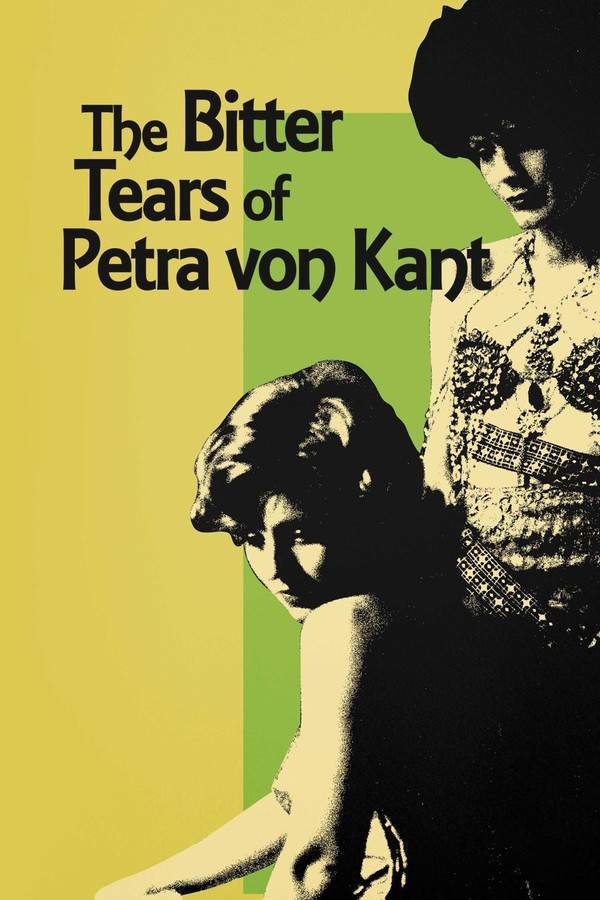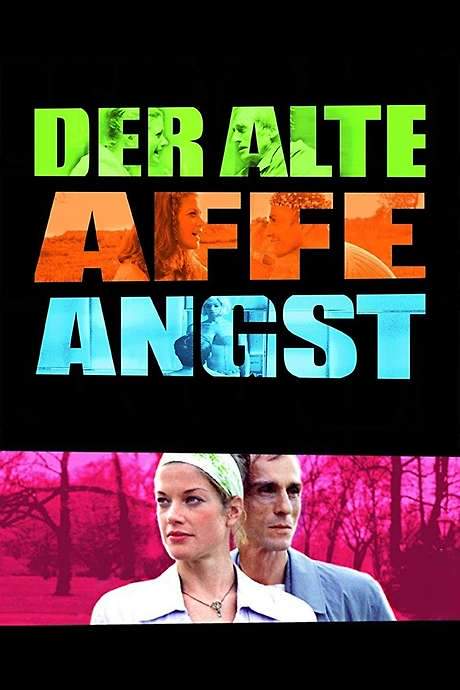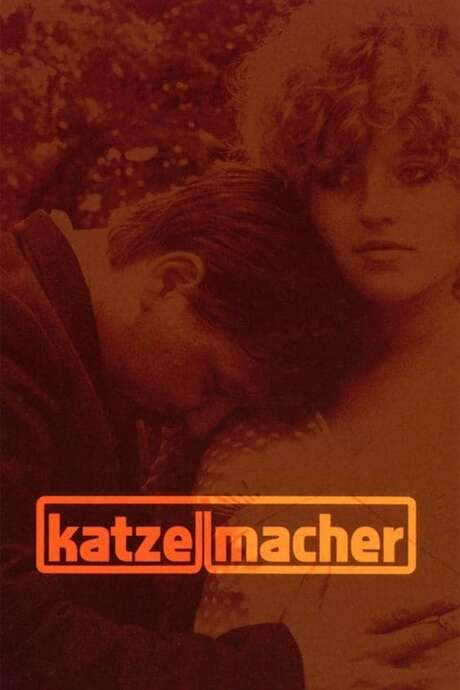The Bitter Tears of Petra von Kant 1973

Within the lavish world of a renowned fashion designer, a tangled relationship develops between Petra von Kant and Margarete Krüll. Petra, a powerful and demanding woman, becomes intensely fixated on Margarete, a former employee. Their connection sparks a passionate and volatile emotional entanglement, exposing their hidden vulnerabilities and challenging the boundaries of their identities. The story explores themes of power, desire, and the complexities of human relationships.
Does The Bitter Tears of Petra von Kant have end credit scenes?
Yes!
The Bitter Tears of Petra von Kant does have end credit scenes. Stay until the very end!
Meet the Full Cast and Actors of The Bitter Tears of Petra von Kant
Explore the complete cast of The Bitter Tears of Petra von Kant, including both lead and supporting actors. Learn who plays each character, discover their past roles and achievements, and find out what makes this ensemble cast stand out in the world of film and television.
External Links and Streaming Options
Discover where to watch The Bitter Tears of Petra von Kant online, including streaming platforms, rental options, and official sources. Compare reviews, ratings, and in-depth movie information across sites like IMDb, TMDb, Wikipedia or Rotten Tomatoes.
Ratings and Reviews for The Bitter Tears of Petra von Kant
See how The Bitter Tears of Petra von Kant is rated across major platforms like IMDb, Metacritic, and TMDb. Compare audience scores and critic reviews to understand where The Bitter Tears of Petra von Kant stands among top-rated movies in its genre.

73
Metascore
tbd
User Score


%
TOMATOMETER

0%
User Score
Take the Ultimate The Bitter Tears of Petra von Kant Movie Quiz
Challenge your knowledge of The Bitter Tears of Petra von Kant with this fun and interactive movie quiz. Test yourself on key plot points, iconic characters, hidden details, and memorable moments to see how well you really know the film.
The Bitter Tears of Petra von Kant Quiz: Test your knowledge on the emotional depths and intricate relationships of 'The Bitter Tears of Petra von Kant'.
What is the primary setting of the film?
Petra's Bremen apartment
Fashion show runway
A busy restaurant
A fashion studio
Show hint
Full Plot Summary and Ending Explained for The Bitter Tears of Petra von Kant
Read the complete plot summary of The Bitter Tears of Petra von Kant, including all major events, twists, and the full ending explained in detail. Explore key characters, themes, hidden meanings, and everything you need to understand the story from beginning to end.
In a strikingly decorated Bremen apartment, where a notable reproduction of Poussin’s Midas and Bacchus embellishes the walls, Petra von Kant (Margit Carstensen) meticulously directs her daily life as a fashion designer. Surrounded by life-size mannequins that reflect her creativity, the only living presence in this space is Marlene (Irm Hermann), her ever-efficient assistant, who aids her with a quiet grace.
Petra’s life, however, is marred by grief and heartbreak. She has endured the tragic loss of both her husbands; her first love, Pierre, died in a car accident while she was pregnant, and her second marriage ended in revulsion, leaving her emotionally scarred and distrustful of intimacy. This has led her to view Marlene not as an ally but as a subordinate, revealing a sadistic edge to her character that is both compelling and deeply unsettling.
As morning breaks, Marlene gently nudges Petra from her slumber, prompting her to engage in her usual routine, which includes a call to her mother and a barrage of requests directed at Marlene. Prior to an unexpected visitation, Petra adorns herself with a brown wig, an act that hints at a shift in her mood.
The arrival of Sidonie (Katrin Schaake), her cousin, sparks a heartfelt conversation about Petra’s difficult relationships with men. Meanwhile, Marlene deftly balances the needs of both women, maintaining a fragile peace. But the real intrigue begins when Karin Thimm (Hanna Schygulla), Sidonie’s beautiful friend returns to Germany from Sydney, and Petra is instantly captivated by the allure of this 23-year-old.
Eager to utilize Karin’s charm for her fashion label, Petra proposes that she model for her, and much to her delight, Karin accepts. The very next day, Petra sports a more elaborate dark wig as she puts forth an offer to mentor Karin in modeling. The fact that Karin’s husband remains in Australia creates a momentary blip in Petra’s enthusiasm, yet she pushes forward, drawn to Karin’s magnetic presence.
As their relationship blossoms, the contrasts in their backgrounds become starkly apparent. Petra’s upbringing in an affectionate household stands in sharp contrast to Karin’s past, characterized by neglect and emotional voids, heightening their differences and ultimately their conflicts.
Despite initial reservations regarding Karin’s marital status, Petra finds herself embroiled in a passionate romance with the captivating young woman. However, as they share their lives together, the depth of their incompatibility becomes glaringly evident, forcing Petra to confront the harsh truths of her own desires and limitations.
When Karin divulges the tragic story of her parents’ demise, Petra is unexpectedly moved, sensing an emotional bond forming. As they celebrate over a chilled bottle of Sekt, Petra vows to transform Karin into an extraordinary model, while Marlene resumes her typing duties in the background, her feelings well-concealed.
In a surprising turn, Petra suggests that Karin move in with her, signifying the deepening of their relationship. While Marlene continues to thrive in her role, Petra’s feelings for Karin intensify, contrasting with Karin’s more guarded emotional landscape. Their dynamic becomes even more complex when Karin’s past comes to haunt their present.
As days pass, Petra’s vibrant red wig replaces her more somber styles, and the tension escalates when Karin’s unexpected cruelty surfaces through her late-night escapades, including interactions with another man. Jealousy grips Petra when she learns about Karin’s correspondence with her husband, igniting a volatile confrontation that underscores the fraying edges of their affair.
During an inebriated birthday celebration, Petra’s emotional turmoil culminates when she lashes out at her daughter, Gaby, reflecting her own chaotic affections and torment over her feelings for Karin. The arrival of her mother, Valerie, ultimately unveils the dysfunctional nature of Petra’s relationships, as she spirals into a dramatic confrontation over her affections for Karin and her disdain for her own family.
As the day turns to night, Petra lays in bed, her thoughts an amalgamation of regret and longing. With a newfound clarity, she acknowledges that her fixation on Karin is less about love and more about possession. When the phone rings, signaling Karin’s call, Petra decides to prioritize self-reflection over immediate gratification.
In a poignant moment, she reaches out for forgiveness from Marlene, vowing to transform their dynamic into one founded on honesty and trust. Yet, as Marlene quietly gathers her belongings, including a pistol, she leaves, taking a doll that symbolizes Petra’s past attempts at control. The door closes behind her, leaving Petra in the desolate space of self-realization and regret, forced to confront the emptiness of her emotional pursuits and the possibilities that lie ahead.
Uncover the Details: Timeline, Characters, Themes, and Beyond!

Coming soon on iOS and Android
The Plot Explained Mobile App
From blockbusters to hidden gems — dive into movie stories anytime, anywhere. Save your favorites, discover plots faster, and never miss a twist again.
Sign up to be the first to know when we launch. Your email stays private — always.
Watch Trailers, Clips & Behind-the-Scenes for The Bitter Tears of Petra von Kant
Watch official trailers, exclusive clips, cast interviews, and behind-the-scenes footage from The Bitter Tears of Petra von Kant. Dive deeper into the making of the film, its standout moments, and key production insights.
The Bitter Tears of Petra von Kant Themes and Keywords
Discover the central themes, ideas, and keywords that define the movie’s story, tone, and message. Analyze the film’s deeper meanings, genre influences, and recurring concepts.
The Bitter Tears of Petra von Kant Other Names and Titles
Explore the various alternative titles, translations, and other names used for The Bitter Tears of Petra von Kant across different regions and languages. Understand how the film is marketed and recognized worldwide.
Similar Movies To The Bitter Tears of Petra von Kant You Should Know About
Browse a curated list of movies similar in genre, tone, characters, or story structure. Discover new titles like the one you're watching, perfect for fans of related plots, vibes, or cinematic styles.
Quick Links: Summary, Cast, Ratings, More

What's After the Movie?
Not sure whether to stay after the credits? Find out!
Explore Our Movie Platform
New Movie Releases (2026)
Famous Movie Actors
Top Film Production Studios
Movie Plot Summaries & Endings
Major Movie Awards & Winners
Best Concert Films & Music Documentaries
Movie Collections and Curated Lists
© 2026 What's After the Movie. All rights reserved.




































